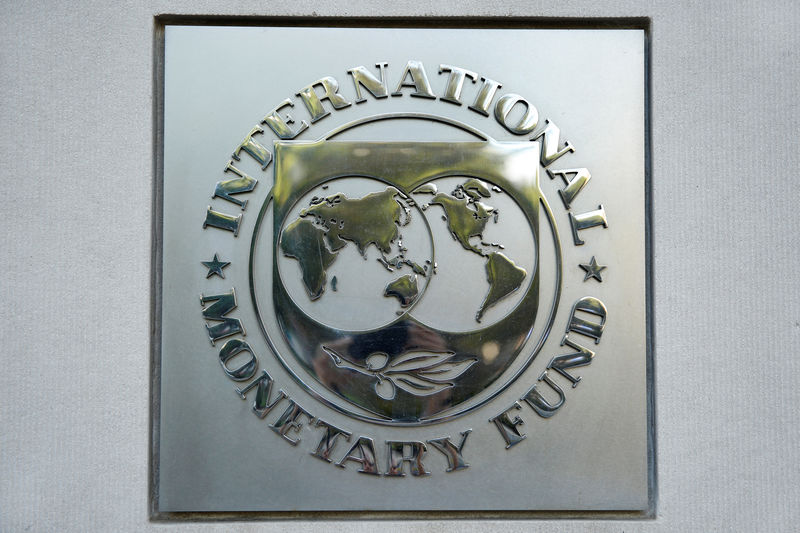 © Reuters. FILE PHOTO: International Monetary Fund logo is seen in Washington
© Reuters. FILE PHOTO: International Monetary Fund logo is seen in WashingtonBy Leika Kihara and Sumio Ito
TOKYO/MIYAZAKI, Japan (Reuters) – The International Monetary Fund on Wednesday urged Japan to maintain its massive monetary stimulus to support struggling consumer prices, a view echoed by a central bank board member, reinforcing expectations policy will remain accommodative.
IMF Managing Director Christine Lagarde said Bank of Japan Governor Haruhiko Kuroda was doing the right thing by committing to keep the money spigot wide open until inflation hits his ambitious 2 percent target.
Her comments come amid growing criticism that the BOJ’s huge asset purchases are distorting markets and pushing Tokyo stock prices – which hit a near 26-year high this week – beyond levels justified by economic fundamentals.
“One of the strengths of central bankers is to be very clear in their communication and determined in their resolve, which clearly Governor Kuroda has demonstrated,” Lagarde told Reuters on Wednesday.
With inflation distant from its target, the BOJ has said it is nowhere near dialing back its huge stimulus even as its U.S. and European counterparts eye an exit from crisis-mode policies.
BOJ board member Yukitoshi Funo on Wednesday also defended the bank’s huge asset purchases, saying he saw no need now to slow its purchases of exchange-traded funds (ETF) from the current pace of 6 trillion yen ($53 billion) per year.
“Stock prices aren’t overheating,” Funo told a briefing in Miyazaki, southern Japan, adding that it was “very favorable” that stock prices have risen so much.
ROOM FOR TWEAKS
Kuroda has been under growing calls for more transparency on how the BOJ could dial back stimulus. Many market players see a good chance he could be reappointed after his current five-year term ends in April next year.
While Funo, a former auto executive, ruled out the chance of an immediate withdrawal of stimulus, he said the BOJ should be vigilant to the threats prolonged monetary easing pose.
“We’re not assuming we won’t make any changes to all of our various policy tools until 2 percent inflation is achieved,” he said, leaving open the chance of tweaking some parts of the framework before others.
The comment reflects a growing view within the BOJ that its next move should be to roll back, not ramp up, its stimulus given the rising cost and diminishing returns of the program, although there are varying opinions on how and when policy should be tweaked.
Lagarde said the diverging policy paths of major central banks have not led to massive and disruptive capital outflows in Asia, thanks to the cautious approach and clear communication by central bankers on their policy shifts.
“We believe these conditions can help to ensure that monetary policy changes do not provoke unnecessary capital flow movements,” she said.
Under a policy framework adopted last year, the BOJ now guides short-term interest rates at minus 0.1 percent and the 10-year government bond yield around zero percent. It also buys government bonds and riskier assets, including ETFs.
($1 = 113.8100 yen)
Fusion Media or anyone involved with Fusion Media will not accept any liability for loss or damage as a result of reliance on the information including data, quotes, charts and buy/sell signals contained within this website. Please be fully informed regarding the risks and costs associated with trading the financial markets, it is one of the riskiest investment forms possible.
Source: Investing.com


























